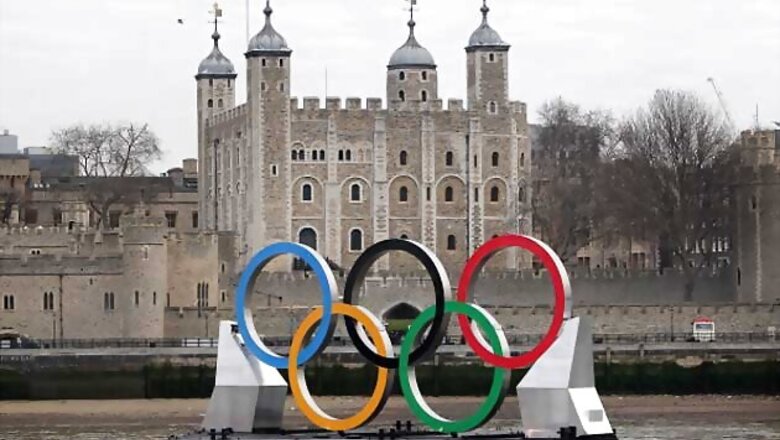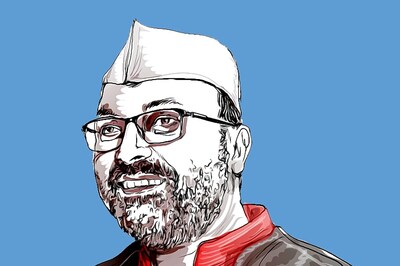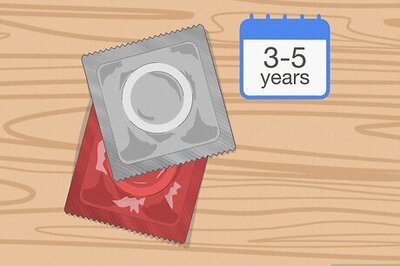
views
London: Cyberbullies targeting Olympic athletes received a clear message on Tuesday to back off following the arrest of a suspected Internet troll but the issue highlighted a divide on how to deal with Twitter abuse.
Police arrested a 17-year-old man on suspicion of malicious communication after British diver Tom Daley received tweets saying he had let down his deceased father by finishing fourth and failing to win a medal.
On Monday, Swiss footballer Michel Morganella was expelled from the Games for tweeting South Koreans "can go burn" after they beat his team but the player was not arrested.
Greek triple jumper Voula Papachristou was kicked out of the Olympics two days before the official opening after a tweet mocking African immigrants. No legal action has been taken.
Lawyer David Allen Green, head of media at London firm Preiskel & Co which has just won a landmark ruling on social media in the High Court, said there were various ways in which misuse of Twitter could be handled.
"Prosecutors, regulators and professional bodies have some discretion on how to handle such issues and they can decide if there is a breach of any regulatory or disciplinary code," he told Reuters.
Olympic officials and athletes are struggling to come to terms with what is and what is not permissible on Twitter.
The International Olympic Committee (IOC) has encouraged the 10,800 athletes in London to communicate with fans through social media but issued guidelines on the expected standards of behaviour and warned any misues could lead to expulsion from the Games.
London organising committee LOCOG did not respond to requests asking for comments on their Twitter monitoring policy.
A Twitter spokeswoman said they do not monitor content on the site but if a case of abuse is reported, they evaluate whether it violates their terms of service and take appropriate action.
Lawyer Trevor Watkins, head of sport and a partner at international firm Pinsent Masons LLP, said the regulations governing Twitter were the same as for speech or writing.
"The rules are very clear on what you can and cannot do and say," Watkins told Reuters.
"But we are now living in a different world from before where we are dealing with instant communication and anything said is repeated again and again and around the world. There needs to be flexibility and adaptability to handle this."
FREEDOM OF SPEECH?
Britain's Malicious Communications Act makes it illegal to send or deliver letters or other articles to cause "distress or anxiety". This also applies to electronic communications.
Under the Act it is an offence to send a message that is grossly offensive or of an indecent, obscene or menacing character on a public electronic communications network.
It is this law that has sparked most legal action against tweeters but courts are still navigating the complexities.
In March, law student Joshua Cryer was given a two-year community order after sending former footballer Stan Collymore a series of racist tweets deemed "grossly offensive".
But last week, in a landmark ruling, Britain's High Court sided with Paul Chambers, 28, and overturned a conviction for sending a "menacing" message after joking on Twitter that he would blow up an airport after it closed because of snow.
The court ruled the January 2010 tweet was more of a joke, albeit a bad one, than a serious threat, setting a precedent for establishing that there has to be an action that is menacing and is intended to be menacing for a tweet to be illegal.
Chambers's solicitor was David Allen Green.
Ellis Cashmore, professor of culture, media and sport at Britain's Staffordshire University, said police may arrest people for Twitter abuse but this would not solve the problem as the jury was still out on what was and was not acceptable.
"We are in the process of trying to get the demarcation right between what is freedom of speech and what is malicious abuse that is harmful," Cashmore told Reuters.
"How do you determine if this has caused harm to a person?"
Cashmore said he sympathised with athletes like Daley who found themselves victims of Internet trolls.
Athletes have adopted different ways to deal with bullying.
British weightlifter Zoe Smith, 18, was called a "lesbian" and "bloke" by Twitter trolls but won praise from anti-bullying organisations and fans for hitting back at the cyberbullies, retweeting messages and naming and shaming the culprits.
Cashmore said it was unlikely athletes would be put off their game by cyberbullies as they were all used to the good and bad side of social media.
He suggested the best response was to ignore trolls as these were people who tended to be lacking authority, perhaps earning less than they believe they are worth, who sought empowerment by using abuse to hurt people.
"The worst thing for a troll is not to get a reaction," said Cashmore.



















Comments
0 comment